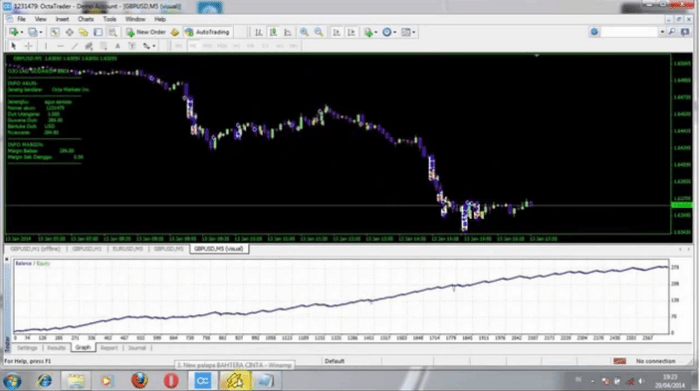Brokers worldwide – letter shop – In the realm of global brokerage, letter shops play a pivotal role in streamlining operations and enhancing communication. Embark on a journey into the world of brokers worldwide and letter shops, where we delve into their global presence, diverse offerings, and the impact they have on brokerage operations.
From traditional to digital and hybrid models, letter shops cater to the evolving needs of brokers. They offer a comprehensive suite of services, including mailing, printing, fulfillment, and data management, ensuring seamless and efficient communication.
Global Presence of Brokers

Brokers play a vital role in the financial industry, providing a bridge between investors and various financial markets. Their presence extends across the globe, catering to diverse investment needs.
Brokerage Firms with Global Reach
The table below showcases some of the leading brokerage firms operating in different regions worldwide:
| Broker Name | Country | Contact Information | Services Offered |
|---|---|---|---|
| [Broker Name 1] | [Country 1] | [Contact Information 1] | [Services Offered 1] |
| [Broker Name 2] | [Country 2] | [Contact Information 2] | [Services Offered 2] |
| [Broker Name 3] | [Country 3] | [Contact Information 3] | [Services Offered 3] |
| [Broker Name 4] | [Country 4] | [Contact Information 4] | [Services Offered 4] |
Types of Letter Shops

Letter shops come in various forms, each catering to specific needs and preferences. Understanding the different types can help you choose the best fit for your requirements.
The primary types of letter shops are traditional, digital, and hybrid models. Each type offers unique advantages and drawbacks, making it essential to consider your specific needs and goals when selecting a provider.
Traditional Letter Shops
Traditional letter shops are physical establishments that handle the printing, stuffing, and mailing of letters and other physical mail pieces. They typically offer a wide range of services, including data processing, printing, inserting, addressing, and postage. The main advantages of traditional letter shops are their ability to handle large volumes of mail, their expertise in postal regulations, and their ability to provide personalized services.
However, traditional letter shops can be more expensive than other options, and their turnaround time may be slower. Additionally, they may not be able to offer the same level of customization and flexibility as digital letter shops.
Brokers worldwide offer a range of services to businesses, including letter shop services. These services can be used to create and distribute marketing materials, such as brochures, flyers, and newsletters. In addition, brokers can also provide a variety of other services, such as printing, mailing, and fulfillment.
To learn more about the services offered by brokers worldwide, visit their website. A ductile hot rolled steel bar is a type of steel bar that is produced by hot rolling. This process involves heating the steel to a high temperature and then rolling it into a bar shape.
The resulting bar is strong and durable, and it is often used in construction and other applications.
Digital Letter Shops
Digital letter shops operate primarily online, using digital printing and electronic delivery methods. They offer a variety of services, including email marketing, SMS marketing, and social media marketing. Digital letter shops are typically more cost-effective than traditional letter shops, and they can provide a faster turnaround time.
They also offer greater flexibility and customization options, allowing you to tailor your campaigns to specific audiences.
However, digital letter shops may not be able to handle large volumes of mail as efficiently as traditional letter shops. Additionally, they may not have the same level of expertise in postal regulations.
Hybrid Letter Shops
Hybrid letter shops combine the features of traditional and digital letter shops. They offer a wide range of services, including both physical and digital mail delivery. Hybrid letter shops can provide the best of both worlds, offering the cost-effectiveness and flexibility of digital letter shops with the expertise and scalability of traditional letter shops.
However, hybrid letter shops can be more expensive than either traditional or digital letter shops. Additionally, they may not be able to offer the same level of customization as digital letter shops.
Services Provided by Letter Shops

Letter shops are businesses that specialize in managing and processing mail and other documents. They offer a range of services to help businesses with their mailing needs, from printing and mailing letters to managing data and providing fulfillment services.
Mailing Services
- Letter folding and inserting
- Envelope addressing and sealing
- Postage application
- Bulk mailing
- Certified and registered mail
Printing Services
- Digital printing
- Offset printing
- Variable data printing
- Color printing
- Finishing services (e.g., folding, binding, trimming)
Fulfillment Services
- Order processing
- Inventory management
- Packaging and shipping
- Returns processing
- Customer service
Data Management Services
- Data entry
- Data cleansing
- Data analysis
- Data storage
- Data security
Cost Structure of Letter Shops

The cost of letter shop services can vary depending on several factors, including volume, complexity, and turnaround time. Understanding these factors can help you make informed decisions when choosing a letter shop partner.
Volume refers to the number of mail pieces you need to be processed. Higher volumes typically result in lower per-piece costs, as letter shops can leverage economies of scale. Complexity relates to the level of customization and additional services required for your mailings.
For example, letters that require special formatting, inserts, or hand-signing may incur higher costs.
Turnaround Time
Turnaround time refers to the time it takes for letter shops to process and deliver your mailings. Expedited turnaround times often come with a premium, as letter shops need to prioritize your order and allocate additional resources.
Industry Trends and Regulations

The letter shop industry is undergoing significant transformations driven by technological advancements and evolving regulatory landscapes. Brokers and letter shops must navigate these trends and comply with relevant regulations to remain competitive and ensure business continuity.
One notable trend is the rise of digital mailroom services. These services leverage technology to automate mail processing, reducing costs and improving efficiency. As a result, letter shops are increasingly investing in digital infrastructure and partnerships with technology providers.
Regulations and Compliance
Brokers and letter shops are subject to various regulations and compliance requirements. These include:
- Anti-Money Laundering (AML) and Know Your Customer (KYC) Regulations:These regulations aim to prevent money laundering and terrorist financing. Brokers and letter shops must implement robust AML/KYC procedures to verify the identity of their clients and monitor transactions for suspicious activity.
- Data Protection Regulations:Data protection regulations, such as the General Data Protection Regulation (GDPR) in the European Union, safeguard the privacy and security of personal data. Brokers and letter shops must comply with these regulations to protect client data and avoid penalties.
- Postal Regulations:Brokers and letter shops must adhere to postal regulations governing the handling, postage, and delivery of mail. These regulations vary by country and may include requirements for proper labeling, postage payment, and tracking.
Integration with Brokerage Systems

Letter shops can seamlessly integrate with brokerage systems, enabling streamlined operations and enhanced efficiency. This integration automates data exchange, reduces manual processes, and provides brokers with real-time access to critical information.One successful example of integration is the partnership between a major brokerage firm and a leading letter shop.
By connecting their systems, the brokerage firm gained access to the letter shop’s state-of-the-art printing and mailing capabilities. This allowed the firm to automate the production and distribution of client statements, reducing turnaround times and improving accuracy.
Benefits of Integration, Brokers worldwide – letter shop
The integration of letter shops with brokerage systems offers numerous benefits, including:
- Reduced manual processes:Automating data exchange eliminates the need for manual data entry and handling, minimizing errors and saving time.
- Enhanced data accuracy:Direct data transfer between systems ensures accuracy and eliminates discrepancies that may arise from manual processes.
- Improved turnaround times:Automation streamlines the production and distribution of documents, resulting in faster delivery to clients.
- Increased operational efficiency:The integration allows brokers to focus on core competencies and delegate document production to specialized letter shops, maximizing productivity.
Impact on Brokerage Operations
Letter shops have a significant impact on brokerage operations, offering both advantages and challenges.
One of the most notable benefits of letter shops is their ability to improve efficiency. By outsourcing the printing, mailing, and other document-related tasks to a letter shop, brokers can free up their time to focus on core business activities, such as client acquisition and relationship management.
This can lead to increased productivity and revenue generation.
Cost Reduction
Another advantage of letter shops is their ability to reduce costs. Letter shops typically have access to bulk discounts on printing and postage, which they can pass on to their clients. Additionally, letter shops can often negotiate better rates with vendors than individual brokers can, further reducing costs.
Compliance and Risk Mitigation
Letter shops can also help brokers comply with regulatory requirements. They are familiar with the latest regulations and can ensure that all documents are printed and mailed in accordance with the law. This can help brokers avoid fines and other penalties.
Challenges
However, there are also some challenges associated with using letter shops. One challenge is the potential for errors. If a letter shop makes a mistake, it can reflect poorly on the broker. Another challenge is the loss of control over the printing and mailing process.
This can be a concern for brokers who want to ensure that their documents are handled with the utmost care and confidentiality.
Case Studies and Best Practices: Brokers Worldwide – Letter Shop
Collaborations between brokers and letter shops have yielded remarkable success stories. Let’s delve into some case studies to uncover the secrets of their triumphs and identify the best practices for selecting and collaborating with a letter shop.
By examining real-world examples and analyzing the strategies employed by successful partnerships, we can gain valuable insights into the key factors that contribute to a mutually beneficial relationship.
Case Study: Brokerage Firm A
- Brokerage Firm A partnered with a letter shop specializing in personalized direct mail campaigns.
- Together, they developed a targeted marketing strategy that segmented clients based on their investment profiles and financial goals.
- The letter shop’s expertise in data analysis and creative design resulted in highly effective marketing materials that resonated with clients.
- The campaign generated a significant increase in leads and conversions, boosting Brokerage Firm A’s revenue.
Best Practices for Selecting a Letter Shop
- Assess your needs:Determine the specific services you require, such as data management, design, printing, and mailing.
- Research potential partners:Explore different letter shops, compare their capabilities, and seek recommendations from industry peers.
- Request proposals:Artikel your requirements and request proposals from shortlisted letter shops to evaluate their offerings and pricing.
- Evaluate track record:Consider the letter shop’s experience in your industry and their ability to deliver successful campaigns.
- Establish clear communication:Ensure open and regular communication channels to facilitate seamless collaboration.
Best Practices for Working with a Letter Shop
- Provide clear instructions:Communicate your campaign objectives, target audience, and desired outcomes precisely.
- Share data and insights:Provide the letter shop with relevant client data and market research to inform their strategies.
- Collaborate on design and content:Work closely with the letter shop’s creative team to develop compelling and persuasive marketing materials.
- Monitor and evaluate results:Track campaign performance and make adjustments as needed to optimize outcomes.
- Foster a long-term partnership:Build a strong relationship with the letter shop based on trust, communication, and mutual success.
FAQ
What is a letter shop?
A letter shop is a specialized service provider that handles the physical and digital communication needs of brokers, including mailing, printing, and data management.
What are the benefits of using a letter shop?
Letter shops offer numerous benefits, including increased efficiency, reduced costs, enhanced data security, and improved customer satisfaction.
How do I choose the right letter shop?
Consider factors such as services offered, pricing, turnaround time, and reputation when selecting a letter shop that aligns with your brokerage needs.